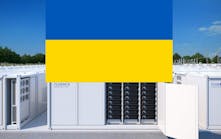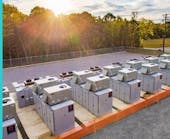Honeywell Installing 124 MWh BESS at 6 Solar Parks to Decarbonize U.S. Virgin Islands
Honeywell will provide its first installment of 124 MWh battery energy storage systems (BESS) to VIElectron, a CB Loranger Company, for six 140 MWDC solar parks across the U.S. Virgin Islands.
Upon completion, the solar array and BESS will help strengthen the islands' decarbonization efforts by achieving 30% of their energy consumption through renewable sources.
VIElectron will install solar panels across St. Thomas, St. Croix, and St. John while reducing the impacts of energy peaks and valleys resulting from solar power.
The BESS will include an end-to-end battery management system to deliver advanced energy controls with an integrated safety system.
The features will help the U.S. Virgin Islands predict and optimize energy usage and costs with affordable and clean energy to its residents through the solar array.
"As we embark on a transformative journey toward renewable energy, Honeywell's battery storage expertise aligns seamlessly with our vision," said U.S Virgin Islands Governor Albert Bryan Jr., commending this partnership with Honeywell and VIElectron. "It propels us closer to our goal of achieving 30% renewable energy consumption in the U.S. Virgin Islands, fostering a cleaner and greener energy ecosystem."





